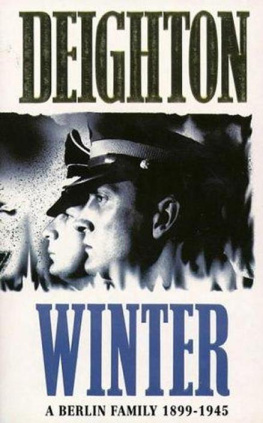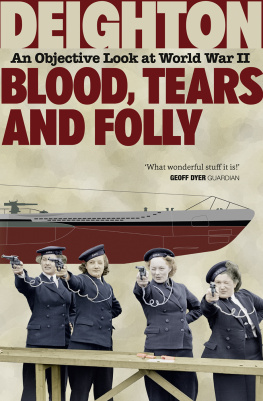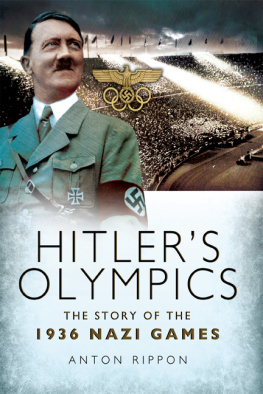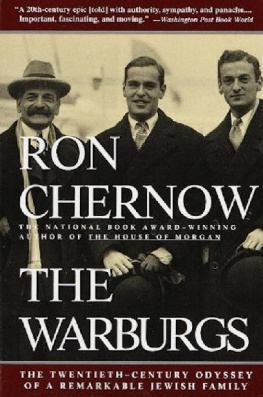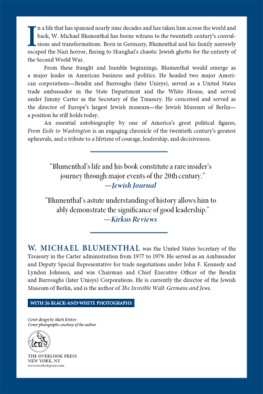Len Deighton was born in London in 1929. He worked as a railway clerk before doing his National Service in the RAF as a photographer attached to the Special Investigation Branch.
After his discharge in 1949, he went to art school - first to the St Martins School of Art, and then to the Royal College of Art on a scholarship. It was while working as a waiter in the evenings that he developed an interest in cookery - a subject he was later to make his own in an animated strip for the Observer and in two cookery books. He worked for a while as an illustrator in New York and as art director of an advertising agency in London.
Deciding it was time to settle down, Deighton moved to the Dordogne where he started work on his first book, The Ipcress File. Published in 1962, the book was an immediate and spectacular success. Since then he has published twenty-four books of fiction and non-fiction - including spy stories, and highly researched war novels and histories - all of which have appeared to international Acclaim.
By the same author
The Ipcress File
Horse Under Water
Funeral in Berlin
Billion-Dollar Brain
An Expensive Place to Die
Only When I Larf
Bomber
Declarations of War
Close-Up
Spy Story
Yesterdays Spy
Twinkle, Twinkle, Little Spy
SS-GB
XPD
Goodbye Mickey Mouse
Berlin Game
Mexico Set
London Match
Action Cookbook Basic French Cooking (revised and enlarged from Oil est le Garlic?)
Fighter
Airshipwreck
Blitzkrieg
The Battle of Britain
LEN DEIGHTON
Winter
GRAFTON BOOKS
A Division of the Collins Publishing Group
LONIX)N GLASGOW
FORONTO SYDNEY AU-KLAND
Grafton Books A Division of the Collins Publishing Group 8 Grafton Street,
London WIX 3LA
Published by Grafton Books 1988
First published in Great Britain by Hutchinson Ltd 1987
Copyright (:C) Len Deighton 1987
ISBN 0-586-06895-3
Printed and bound in (3reat Britain b) Collins, Glasgow
Set in Times
All rights reserved. No part of this publication may be reproduced, stored in a retrieval system, or transmitted, in any form, or by any means, electronic, mechanical, photocopying, recording or otherwise, without the prior permission of the publishers.
This book is sold subject to the condition that it shall not, by way of trade or otherwise, be lent, re-sold, hired out or otherwise circulated without the publishers prior consent in any form of binding or cover other than that in which it is published and without a similar condition including this condition being imposed on the subsequent purchaser.
Readers should remember that the opinions expressed by the characters are not necessarily those of the author...
James Jones
Prologue
Nuremberg 1945
Winter entered the prison cell unprepared for the change that the short period of imprisonment had brought to his friend. The prisoner was fifty-two years old and looked at least sixty. His hair had been thinning for years, but suddenly hed become a bald-headed old man. He was sitting on the iron frame bed, sallow and shrunken. His elbows were resting on his knees and one hand was propped under his unshaven chin. The prison authorities had taken from him his belt, his braces, and his necktie, and the expensive custom-made suit from Berlins most famous tailor was now stained and baggy. And yet the dark-underlined eyes were the same, and the pointed cleft chin made him immediately recognizable as a celebrity of the Third Reich, one of Hitlers most reliable associates.
You sent for me, Herr Reichsminister?
The prisoner looked up. The Reich is kaputt, Germany is kaputt, and Im not a minister: Im just a number. Winter could think of no way to respond to the bitter old man. Hed become used to seeing him sitting behind the magnificent hand-carved desk in the tapestry-hung room in the ministry, surrounded by aides, secretaries, and assistants. Yes, I sent for you, Winter. Sit down.
He sat down. So it was all to be formal.
I sent for you, Herr Doktor Winter, and Ill tell you why. They told me you were in prison in London awaiting interrogation. They said that any of us on trial here could choose any German national we wanted for our defence counsel, and that if the one we chose was being held in prison theyd release him to do it. It seemed to me that a man in prison might know what its like for me in here.
Winter wondered if he should offer the ex-Reichsminister a cigarette, but when - still undecidedhe produced his precious cigarettes, the military policeman in the corridor shouted through the open door, No smoking, buddy!
The ex-Reichsminister gave no sign of having heard the prison guards voice. He carried on with his explanation. Two, you speak American ... speak it fluently. Three, youre a damned good lawyer, as I know from working with you for many years. Four, and this is the most important, you are an ObersturmbannFuhrer in the SS....He saw Winters face change and said, Is there something wrong, Winter?
Winter leaned forward; it was a gesture of confidentiality and commitment. At this very moment, just a few hundred yards from here, there are a hundred or more American lawyers drafting the prosecutions case for declaring the SS an illegal organization. Such a verdict would mean prison, and perhaps death sentences, for everyone who was ever a member. Very well, said the prisoner testily. Hed always hated what he called unimportant pettifogging details. But youre not going to suddenly claim you werent a member of the SS, are you?
For the first time since the message had come that the minister wanted him as junior defence counsel, Winter felt alarmed. He looked round the cell to see if there were microphones. There were bound to be. He remembered this building from the time when hed been working with the Nuremberg Gestapo. Half the material used in the trial of the disgruntled brownshirts had come from shorthand clerks who had listened to the prisoners over hidden microphones. I cant answer that, said Winter softly.
Dont give me that yes-sir, no-sir, I-dont-know-sir. I dont want some woolly-minded, fainthearted, Jew-loving liberal trying to get my case thrown out of court on some obscure technicality. I sent for you because you got me into all this. I remembered your hard work for the party. I remembered the good times we had long before we dreamed of coming to power. I remembered the way your father lent me money back when no one else would even let me into their office. Pull yourself together, Winter. Either put your guts into the effort for my defence or get out of here! Winter admired his old friends courage. Appearances could be deceptive: he wasnt the broken-spirited shell that Winter had thought; he was still the same ruthless old bastard that he had worked for. He remembered that first political meeting in the Potsdamer Platz in the 1920s and the speech hed given: Beneath the ashes fires still rage. It had been a recurring theme in his speeches right up until 1945.
Well fight them, said Winter. Well grab those judges by the ankles and shake them until their loose change falls to the floor.
Thats right, he said. It was another one of his pet expressions. Thats right. He almost smiled.
Times up, buddy!
Winter looked at his watch. There was another two minutes to go. The Americans were like that. They talked about justice and freedom, democracy and liberty, but they never gave an inch. There was no point in arguing: they were the victors. The whole damned Nuremberg trial was just a show trial, just an opportunity for the Americans and the British and the French and the Russians to make an elaborate pretence of legal rectitude before executing the vanquished. But it was better that the ex-Reichsminister didnt fully realize the inevitable verdict and sentence. Better to fight them all the way and go down fighting. At least that would keep his spirits alive. With this resolved, Winter felt better, too. It would be a chance to relive the old days, if only in memories.

